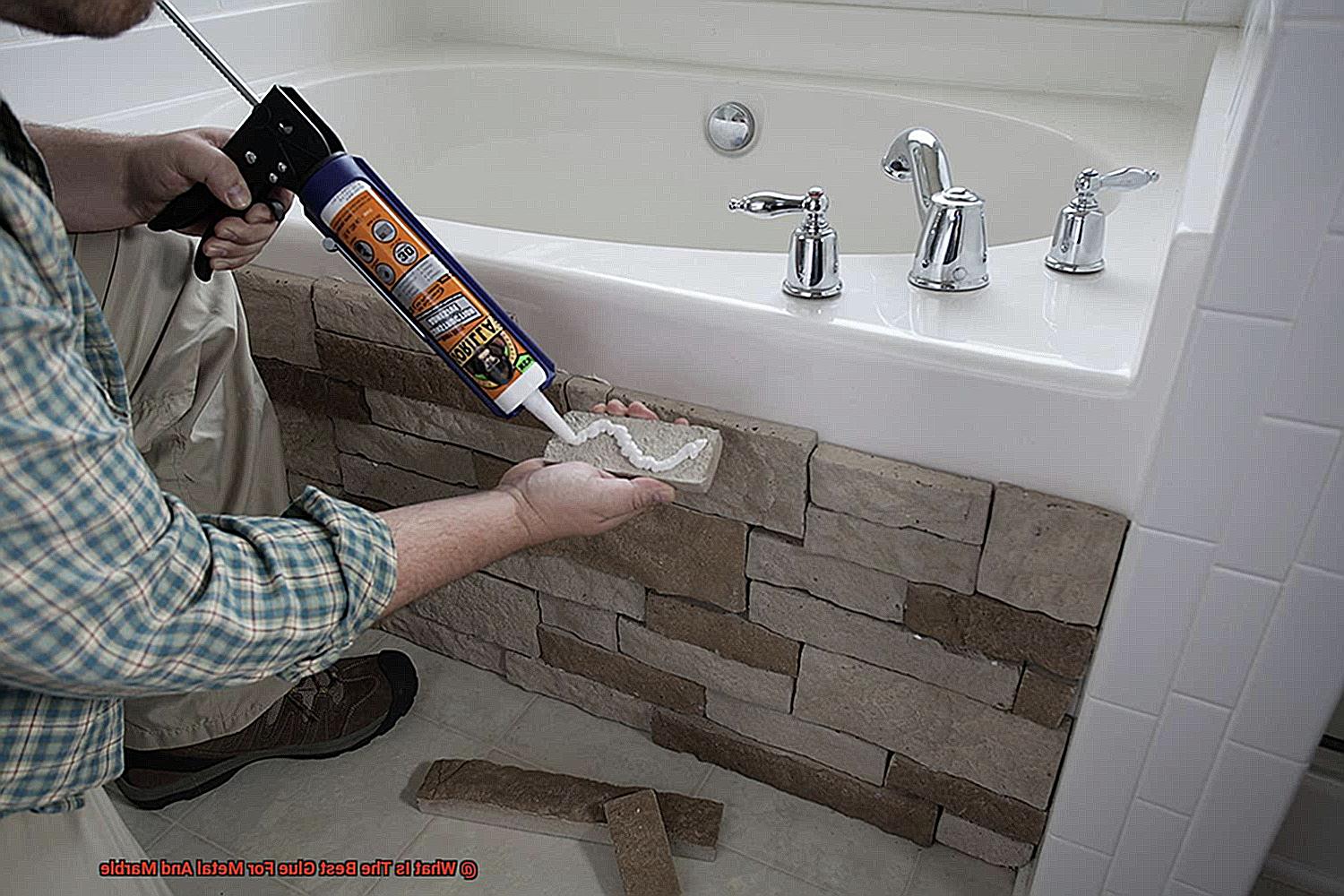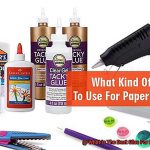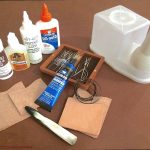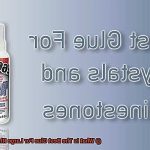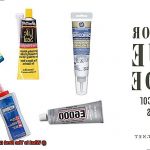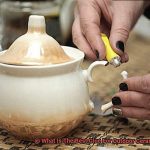Fusing the timeless elegance of marble with the raw strength of metal is a true art form. However, finding the ideal adhesive to bring these two materials together can be a daunting task. With their contrasting properties, it takes a special glue to seamlessly unite them and create a masterpiece that will stand the test of time.
Whether you’re a DIY enthusiast sculpting breathtaking creations or a skilled craftsman shaping architectural wonders, choosing the best glue for bonding metal and marble is crucial. With countless options available, it’s important to make an informed decision that guarantees a flawless connection.
So, let’s embark on this adhesive adventure. Together, we’ll explore both casual and professional perspectives to uncover the holy grail of adhesives that effectively bonds metal and marble.
Casual Perspective:
Contents
- 1 What is Glue?
- 2 Types of Glues for Metal and Marble Bonding
- 3 Preparing the Surfaces for Bonding
- 4 Benefits of Using Epoxy Adhesive for Metal and Marble Bonding
- 5 Benefits of Using Polyurethane Adhesive for Metal and Marble Bonding
- 6 Benefits of Using Cyanoacrylate (Super Glue) for Metal and Marble Bonding
- 7 Benefits of Using Silicone or Hybrid Polymer Adhesives for Metal and Marble Bonding
- 8 Conclusion
For those seeking simplicity without compromising reliability, high-quality epoxy adhesive is often the go-to choice. Epoxy provides exceptional bond strength that withstands vibrations and temperature fluctuations, ensuring a long-lasting connection between metal and marble. Its creamy consistency and longer curing time offer ample working time, allowing beginners to position their materials precisely before the bond sets in.
Professional Perspective:
Professionals tackling demanding projects may require even stronger adhesives. In such cases, stout structural adhesives based on advanced chemical formulations become indispensable. Products like cyanoacrylate (super glue) or polyurethane-based adhesives offer exceptional bonding capabilities, deep penetration, and fast curing times – perfect for professionals who need quick and efficient results.
Choosing the Right Glue:
While epoxy adhesives, cyanoacrylate, and polyurethane-based adhesives are popular choices for bonding metal and marble, it’s essential to consider your project requirements. Factors such as environmental conditions, load-bearing capabilities, and desired appearance should all be taken into account. The selected adhesive should provide a robust and durable connection while enhancing the aesthetic appeal of the metal and marble combination.
Conclusion:
Whether you’re a passionate DIYer or a seasoned professional, achieving the perfect bond between metal and marble is well within your reach. By carefully considering the unique characteristics and demands of your project, epoxy, cyanoacrylate, or polyurethane-based adhesives will help you create a seamless union that will leave a lasting impression. So, let’s get to work and craft something extraordinary.
What is Glue?
Glue, the unsung hero of adhesives, possesses a versatility that makes it indispensable in various applications. From simple repairs to intricate construction projects, glue serves as the adhesive champion that binds materials together. In this article, we will explore the different types of glue and their diverse uses, illuminating how this sticky substance becomes your trusted ally in everyday tasks.
Epoxy Glue:
Epoxy glue reigns as the heavyweight champion of adhesives. With exceptional strength and resistance to heat and chemicals, it excels at bonding metal and marble surfaces. Whether you’re fixing broken ceramics or constructing a sturdy metal structure, epoxy glue delivers reliability and durability.
Cyanoacrylate Glue:
For swift fixes and minor repairs, cyanoacrylate glue, also known as super glue, emerges as the hero. Its rapid-drying properties create an incredibly robust bond within seconds. However, caution is advised when using it on certain metals, as it can cause corrosion.
Polyvinyl Acetate (PVA) Glue:
PVA glue, often referred to as white glue or wood glue, works wonders on porous materials such as wood and paper. A water-based adhesive, PVA glue is not suitable for bonding metal and marble directly but can be effectively combined with specialized glues for enhanced results.
Hot Glue:
If you’re engaged in DIY crafts or require a temporary bond, hot glue is your go-to adhesive. Applied through a hot glue gun, this thermoplastic adhesive solidifies rapidly upon cooling. It’s ideal for creating temporary bonds or attaching lightweight objects.
Silicone Adhesive:
When faced with high-temperature environments or exposure to harsh chemicals during metal and marble bonding, silicone adhesive shines brightly. Boasting excellent resistance to heat and chemicals, silicone adhesives forge a reliable bond capable of withstanding extreme conditions.
Types of Glues for Metal and Marble Bonding
When it comes to bonding metal and marble, finding the perfect glue is crucial for a strong and durable bond. Whether you’re working on a DIY project or repairing a cherished item, the right adhesive can make all the difference. In this blog post, we will explore different types of glues commonly used for bonding metal and marble. We will highlight their unique properties and strengths, helping you choose the perfect glue for your specific needs.
Super Glue: The Instant Fixer
For quick fixes and smaller projects, super glue, also known as cyanoacrylate adhesive, is the way to go. This fast-drying adhesive forms an instant bond between metal and marble surfaces in just seconds. While it may not be as durable as epoxy in certain applications, super glue is perfect for temporary bonding or projects that require immediate results.
Silicone Adhesive: The Temperature Tamer
When temperature fluctuations are a concern, silicone adhesive comes to the rescue. This flexible adhesive can withstand extreme temperatures and offers good resistance to moisture. While it may not provide the same level of strength as epoxy or polyurethane adhesives, silicone adhesive is perfect for applications where flexibility is important, such as outdoor projects or areas with high temperature variations.
Construction Adhesive: The Heavy-Duty Hero
For heavy-duty applications, construction adhesive, such as liquid nails, is your best bet. These adhesives are specifically designed to provide a strong bond and can handle even the toughest jobs. However, they may not be as suitable for more delicate or precise projects where a lighter touch is required.
Epoxy Adhesive
When it comes to uniting metal and marble surfaces, finding the right adhesive can be a daunting task. Fear not, for there is a superhero in the world of glues – epoxy adhesive. In this article, we will explore the remarkable advantages of epoxy adhesive and why it reigns supreme as the perfect choice for creating an unbreakable bond between metal and marble.
Advantage 1: Indomitable Bonding Strength
Epoxy adhesive possesses an unparalleled bonding strength that establishes a permanent and unwavering connection between metal and marble. Whether you are working with hefty objects or areas prone to high traffic, rest assured that epoxy adhesive will securely hold your materials in place.
Advantage 2: Defying the Elements
With exceptional resistance to heat, chemicals, and moisture, epoxy adhesive triumphs over even the harshest conditions. Bid farewell to concerns about temperature fluctuations or exposure to water – epoxy adhesive fearlessly stands its ground.
Advantage 3: Gap-Filling Wizardry
One of the standout features of epoxy adhesive lies in its ability to seamlessly fill gaps. Its thick consistency effortlessly bridges any irregularities or voids between metal and marble, ensuring a robust bond with maximum contact between the two surfaces.
Advantage 4: Rock-Solid Stability
Once fully cured, epoxy adhesive transforms into an unyielding force, providing unmatched stability and support to the bonded surfaces. It fearlessly bears heavy loads and resists vibrations, eliminating any worries about loosening or separation between metal and marble.
Polyurethane Adhesive
Today, we’re diving into the world of polyurethane adhesive and its incredible advantages when it comes to bonding metal and marble surfaces. If you’ve been searching for a glue that can withstand heavy loads, resist water, and accommodate movement, you’ve come to the right place. Let’s explore the superpowers of polyurethane adhesive.
Versatility:
Polyurethane adhesive is a true chameleon when it comes to bonding materials. Its ability to bond metal and marble surfaces effectively makes it a go-to choice for various applications. Whether you’re working on DIY projects or professional construction jobs, this adhesive can handle it all.
Strength and Durability:
When you need a bond that can stand up to the toughest challenges, polyurethane adhesive delivers. Its unyielding strength and durability can handle high levels of stress and pressure, ensuring your metal and marble surfaces stay securely bonded for years to come.
Resistance to Water:
Say goodbye to worries about moisture or damp conditions weakening your bond. Polyurethane adhesive is waterproof, making it an excellent choice for both indoor and outdoor applications. It will keep your metal and marble surfaces firmly bonded even in the face of water exposure.
Flexibility:
Metal and marble surfaces may expand or contract with temperature changes, but fear not. Polyurethane adhesive is highly flexible, allowing it to gracefully accommodate slight movements or vibrations without compromising the bond. This flexibility ensures that your bond remains intact even in dynamic environments.
Easy Application:
Polyurethane adhesive typically comes in two components – a resin and a hardener. Mixing them in the correct ratio is crucial before application. Follow the manufacturer’s instructions regarding working time, curing time, and safety precautions for best results.
Cyanoacrylate Adhesive (Super Glue)
In the vast world of adhesives, one product reigns supreme like a superhero – cyanoacrylate adhesive, better known as Super Glue. With its lightning-fast bonding abilities and extraordinary strength, this adhesive has become a go-to choice for many DIY enthusiasts and professionals alike. Today, we will delve into the properties and uses of Super Glue, unraveling the mysteries behind its incredible powers.
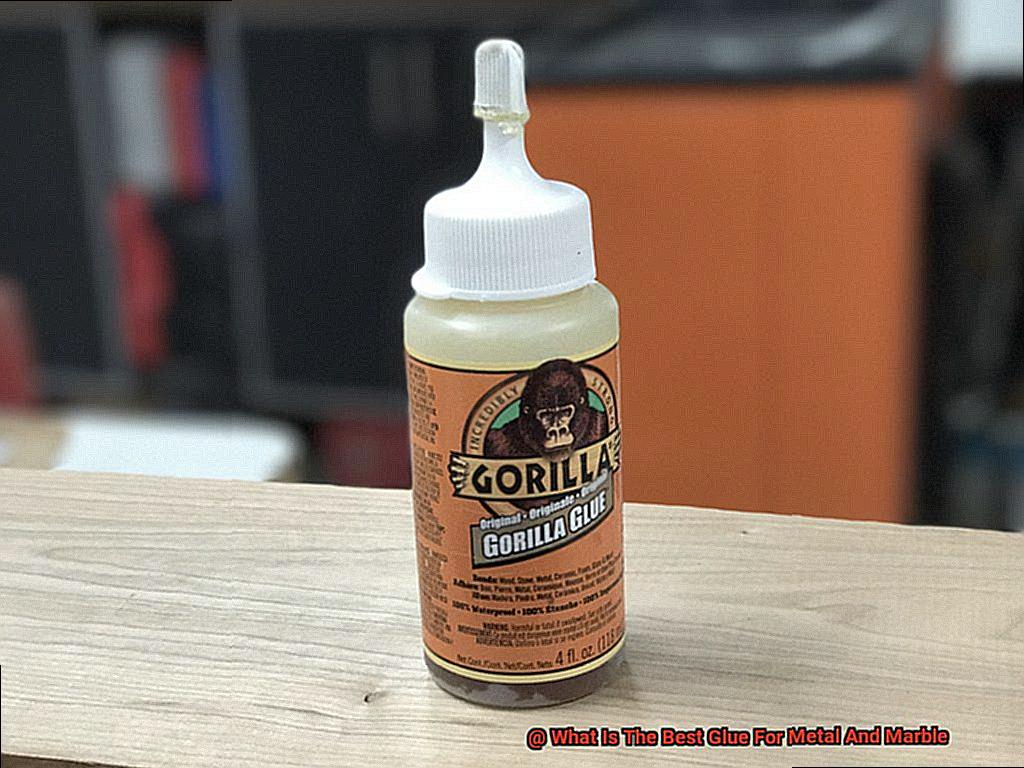
Advantages of Super Glue:
- Strong and Fast Bonding: Super Glue forms an incredibly strong bond when it comes into contact with moisture in the air. This makes it ideal for applications where quick repairs or bonding is needed, saving you time and effort.
- Resistance to Harsh Conditions: Unlike other adhesives, Super Glue can withstand exposure to water, heat, and chemicals, making it suitable for both indoor and outdoor use. It won’t let you down even in challenging environments.
- Quick Drying Time: With its rapid drying time, Super Glue allows for efficient and time-saving repairs. No more waiting around for hours for the adhesive to set – Super Glue gets the job done in a flash.
Considerations for Metal Surfaces:
- Surface Preparation: Before applying Super Glue on metal surfaces, it is crucial to ensure they are clean and free from dirt, grease, or rust. A thorough cleaning with a degreasing solvent or sandpaper will prepare the surface for optimal bonding.
- Load-Bearing Applications: While Super Glue offers excellent bond strength, it may not be suitable for heavy load-bearing or high-stress applications. In these cases, consider alternative adhesives specifically designed to handle such demands.
Considerations for Marble Surfaces:
- Thorough Cleaning: Properly cleaning marble surfaces before applying Super Glue is essential. Remove dust, debris, and any existing adhesives to ensure a strong bond. Your marble surfaces will thank you for the extra care.
- Sensitivity to Acidity: Marble is sensitive to acidic substances, so it’s important to avoid any acidic cleaners or solvents that could damage the surface. Stick to gentle, marble-safe cleaning solutions to maintain its pristine beauty.
Silicone Adhesives
Silicone adhesives are the chameleons of the glue world, capable of bonding different materials together, including metal and marble. Whether you’re fixing a metal ornament with marble accents or creating a stunning masterpiece combining these two materials, silicone adhesives have got your back.
But what sets silicone adhesives apart from the rest? Let’s dive into their superpowers:
- Versatility: These adhesives are like matchmakers for materials. They can bond metal and marble, as well as a wide range of other combinations. From glass to plastic, silicone adhesives are up for the challenge.
- Durability: When it comes to withstanding extreme conditions, silicone adhesives take the crown. They can handle temperature extremes, moisture, and even UV radiation. So whether you’re working on an outdoor project or in a humid environment, your bond will remain unbreakable.
- Water-Resistance: Unlike other glues that crumble when they get wet, silicone adhesives are fearless warriors against water. They stay strong even in the face of H2O. This is especially useful for bonding metal and marble surfaces that may encounter moisture or need frequent cleaning.
Now that you know why silicone adhesives are the ultimate glue for metal and marble bonding, let’s talk about how to use them like a pro.
First, make sure both surfaces are squeaky clean and dry. Use a mild detergent or solvent to remove any dirt or grease. Then, give them a slight roughening with sandpaper to enhance the adhesive’s grip.
When it’s time to apply the adhesive, be modest – a little goes a long way. Squeeze a small amount onto one surface and spread it evenly using a spatula or brush. Avoid going overboard, as excess glue can squeeze out when you press the surfaces together.
Next, align the metal and marble surfaces with precision and apply firm pressure. Hold them in place for the recommended curing time specified by the manufacturer. This will ensure a bond that can withstand the test of time.
Hybrid Polymer Adhesives
Exceptional Versatility:
Prepare to be amazed by the extraordinary versatility of hybrid polymer adhesives. These remarkable glues can effortlessly bond a wide array of materials, including steel, aluminum, copper, and the elegant natural stone that is marble. Their adaptability makes them the go-to choice for industries ranging from construction and automotive to manufacturing.
Unyielding Strength and Durability:
When it comes to creating bonds that stand the test of time, hybrid polymer adhesives reign supreme. They possess unparalleled bonding properties that ensure a permanent connection between metal and marble surfaces. This resilience is particularly crucial when working with materials subjected to constant movement or stress, as the adhesive must withstand these forces without compromising the bond.
Resistant to Harsh Environmental Factors:
Hybrid polymer adhesives fearlessly face the elements. They exhibit remarkable resistance to extreme temperatures, moisture, and damaging UV radiation. Whether it’s an outdoor metal sculpture braving harsh weather conditions or a marble countertop enduring humidity in a bathroom, hybrid polymer adhesives provide a reliable bond that defies nature’s challenges.
Flexibility for Dynamic Applications:
Unlike traditional glues that may lose their flexibility over time, hybrid polymer adhesives retain their elasticity even after curing. This unique characteristic allows them to absorb vibrations and movements without compromising the integrity of the bond. In applications where metal and marble expand or contract due to temperature changes or structural shifts, hybrid polymer adhesives offer a dynamic solution.
Easy Application and Curing:
Prepare for a seamless bonding experience with hybrid polymer adhesives. They are conveniently available in cartridges or tubes, enabling easy dispensing using a caulking gun or applicator. With a relatively fast curing time ranging from a few hours to a day, these adhesives ensure efficient bonding. Following the manufacturer’s instructions regarding surface preparation and curing time is essential to achieve optimal results.
Preparing the Surfaces for Bonding
Preparing the surfaces for bonding is a crucial step when it comes to achieving a strong and durable bond between metal and marble. Just like a superhero needs the right gear and training to save the day, your adhesive bond needs the proper surface prep to ensure success.
Cleanliness is key in surface preparation. Both metal and marble can accumulate dirt, dust, oils, and other contaminants that can interfere with the bonding process. So, grab your cleaning supplies and give those surfaces a good scrub. Use a degreaser or specialized cleaner for metal and a mild detergent or stone-specific cleaner for marble. Remove all traces of grease, oil, rust, or any other foreign substances.
Now that your surfaces are squeaky clean, it’s time to roughen them up a bit. For metal, use sandpaper or a wire brush to create a slightly rough texture. This roughness provides more surface area for the adhesive to grip onto, leading to a stronger bond. But be careful with marble – sanding can damage its delicate surface. Instead, opt for a special primer or etching solution designed for marble. These products create small pores on the surface that enhance adhesion without causing any harm.
After roughening the surfaces, it’s essential to remove any dust or debris that may have been generated during the process. You don’t want any loose particles interfering with your adhesive bond. Use compressed air or a soft cloth to ensure both the metal and marble surfaces are clean and particle-free.
Sometimes, you need an extra boost to achieve the perfect bond. That’s where bonding agents or primers come in handy. These products are specifically designed to improve adhesion between metal and marble. Follow the manufacturer’s instructions to apply them correctly, and allow sufficient drying time before moving on to the adhesive application.
By following these surface preparation steps, you’re setting yourself up for bonding success. Proper cleaning, roughening, and treatment with bonding agents or primers create an optimal surface for the adhesive to adhere to. This means a strong and long-lasting bond between your metal and marble that can withstand the test of time.
Benefits of Using Epoxy Adhesive for Metal and Marble Bonding
When it comes to bonding metals and marbles together, you need an adhesive that can withstand the weight of a superhero and the elegance of a masterpiece. Look no further than epoxy adhesive, the ultimate sidekick for your bonding needs. In this article, we’ll explore the benefits of using epoxy adhesive for metal and marble bonding and why it’s a superior choice compared to other adhesives.
Unbreakable Strength:
Epoxy adhesive boasts exceptional strength, creating a bond that can withstand heavy loads and vibrations. Whether it’s construction projects or automotive applications, epoxy adhesive ensures that your bonded materials stay securely connected, even under constant stress.
Versatility at Its Finest:
Epoxy adhesive is a true chameleon, adapting to various bonding needs. It excels in both horizontal and vertical applications, making it suitable for a wide range of projects. Its ability to fill gaps and conform to uneven surfaces ensures a seamless and smooth bond every time.
Resistance to the Elements:
Epoxy adhesive is built to withstand the harshest environmental conditions. From extreme temperatures to moisture and chemical exposure, epoxy remains unfazed. This resilience makes it an ideal choice for outdoor applications or areas prone to frequent temperature changes.
Aesthetically Pleasing Finish:
Not only does epoxy adhesive provide a strong bond, but it also enhances the appearance of your bonded materials. When used on marble surfaces, epoxy creates a high-gloss finish that adds an extra touch of elegance. It can even be tinted or colored to match the materials being bonded, ensuring a seamless blend.
Longevity Guaranteed:
Epoxy adhesive is known for its durability and longevity. Once cured, it forms a permanent bond that resists deterioration over time. Say goodbye to worries about your bond weakening or breaking down – epoxy adhesive has got you covered for the long haul.
Benefits of Using Polyurethane Adhesive for Metal and Marble Bonding
When it comes to bonding metal and marble, you need an adhesive that possesses Herculean strength and the finesse of a master craftsman. Enter polyurethane adhesive – the ultimate superhero that combines unbreakable power with elegant precision. In this article, we will delve into the remarkable benefits of using polyurethane adhesive for metal and marble bonding, exploring its unrivaled strength, resistance to water and moisture, versatility in application, seamless bonding capabilities, temperature endurance, chemical resistance, and ease of use.
Unbreakable Strength:
Polyurethane adhesive is a force to be reckoned with, boasting extraordinary strength and durability. It forms an unyielding bond that can withstand heavy loads and constant vibrations, ensuring a secure and long-lasting connection. So whether you’re repairing robust metal fixtures or installing majestic marble countertops, rest assured that polyurethane adhesive has the tenacity to withstand any challenge.
Resistance to Water and Moisture:
In environments where metal and marble are exposed to water, polyurethane adhesive rises to the occasion as a steadfast protector. With exceptional resistance to water and moisture, this adhesive forms an impenetrable barrier that prevents damage or weakening of the bond over time. Bid farewell to concerns about your bond being washed away – polyurethane adhesive stands strong against even the most relentless downpour.
Versatility in Application:
Polyurethane adhesive is a true chameleon when it comes to versatility. Its remarkable properties enable it to bond various types of metals, including stainless steel, aluminum, and brass, as well as different grades of marble. Whether you’re working on a small-scale repair or embarking on a grand installation project, polyurethane adhesive is your go-to choice for conquering any bonding challenge.
Seamless Bonding:
Regardless of the uneven or irregular nature of the surfaces, polyurethane adhesive is your unwavering ally. With its exceptional gap-filling properties, it compensates for imperfections in the metal or marble pieces being bonded. The result? A seamless connection that enhances the overall strength and stability of the bond – a true testament to the adhesive’s unparalleled finesse.
Temperature Extremes? No Problem.
Scorching heat or freezing cold temperatures hold no sway over polyurethane adhesive. It fearlessly endures both high and low temperatures without compromising its adhesive properties or integrity. Whether you find yourself in a sweltering kitchen or an icy outdoor setting, rest assured that your bond will remain rock solid.
Chemical Resistance:
Polyurethane adhesive is unafraid of encounters with chemicals. It stands strong against exposure to various chemicals commonly found in industrial or household settings, maintaining its bonding strength without deteriorating. This makes it the reliable choice for bonding metal and marble in environments where chemical contact is a concern, ensuring a steadfast and long-lasting connection.
Benefits of Using Cyanoacrylate (Super Glue) for Metal and Marble Bonding
If you’re searching for the perfect adhesive to bond metal and marble, look no further than cyanoacrylate, commonly known as super glue. This powerful adhesive offers a multitude of benefits that make it the ideal choice for all your bonding needs.
One of the standout advantages of cyanoacrylate is its lightning-fast curing time. Within seconds of applying it, this adhesive forms an incredibly strong bond. Say goodbye to waiting hours for your repairs or projects to dry. With cyanoacrylate, you can complete your tasks in record time.
Strength is another area where cyanoacrylate shines. It exhibits excellent adhesive strength, making it perfect for bonding metal and marble surfaces that may be subjected to heavy loads or stress. Whether you’re fixing a broken metal ornament or creating a stunning marble sculpture, cyanoacrylate has got your back.
Versatility is another key selling point of cyanoacrylate. It can bond various types of metals, including stainless steel, aluminum, brass, and more. Similarly, it is compatible with different types of marble, such as Carrara, Calacatta, and Emperador. No matter what combination of materials you’re working with, cyanoacrylate will rise to the occasion.
When it comes to durability, cyanoacrylate stands tall. It has excellent resistance to moisture and temperature changes, allowing it to withstand exposure to water, humidity, and extreme temperatures without losing its adhesive properties. Whether you’re bonding metal or marble indoors or outdoors, cyanoacrylate will hold strong.
Not only does cyanoacrylate boast impressive performance, but it also offers aesthetic benefits. Its clear formulation ensures that no visible traces of glue are left behind after bonding metal or marble surfaces together. This is particularly important when working with high-end materials like marble, as it helps maintain the beauty of the finished product.
Applying cyanoacrylate is a breeze, thanks to its user-friendly nature. With small bottles and nozzle tips for precise dispensing, you can easily apply a thin layer of adhesive onto the metal or marble surface. Simply press the two surfaces together firmly for a few seconds, and you’ll achieve a secure bond.
It’s important to note that while cyanoacrylate is a fantastic choice for many bonding applications, it may not be suitable for load-bearing structures or surfaces subjected to constant vibrations. In such cases, alternative adhesives like epoxy or structural adhesives may be more appropriate.
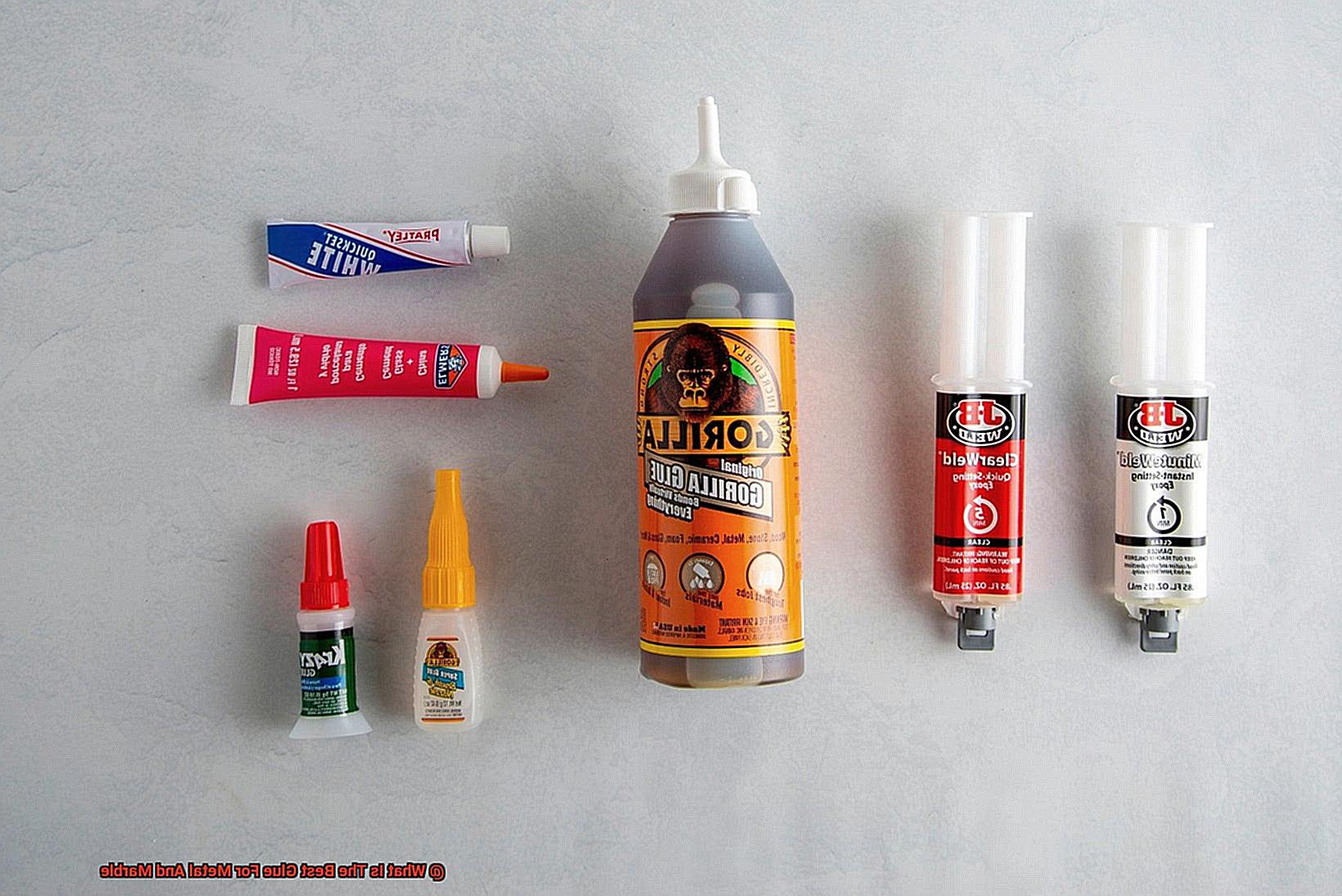
Benefits of Using Silicone or Hybrid Polymer Adhesives for Metal and Marble Bonding
Benefits of Using Silicone or Hybrid Polymer Adhesives for Metal and Marble Bonding
When it comes to bonding metal and marble surfaces, silicone and hybrid polymer adhesives are the top contenders. These adhesives offer a plethora of benefits that make them the ideal choice for this specific application. Let’s delve into the advantages they provide:
- Excellent Adhesion Strength: Silicone and hybrid polymer adhesives ensure a robust and dependable bond between metal and marble surfaces. This is crucial for applications where a secure and long-lasting bond is required, such as in construction or manufacturing industries.
- Resistance to Temperature Fluctuations: These adhesives exhibit a remarkable resistance to temperature changes, making them suitable for both indoor and outdoor use. Whether it’s scorching heat or freezing cold, silicone and hybrid polymer adhesives can withstand extreme temperatures without compromising the bond.
- No Shrinkage or Cracking: Unlike some other types of adhesives, silicone and hybrid polymer adhesives do not shrink or crack over time. This means that the bond remains intact and reliable for years to come, providing peace of mind and durability.
- Flexibility: The flexibility of silicone and hybrid polymer adhesives allows them to withstand vibrations and movements without weakening the bond. This is particularly important in applications where there may be slight movements or vibrations, such as in the construction or automotive industries. The ability to absorb shocks and movements ensures that the bond remains secure even in dynamic environments.
- Moisture and Water Resistance: Silicone and hybrid polymer adhesives boast high resistance to moisture and water. This makes them perfect for bonding metal and marble surfaces in wet areas such as bathrooms or kitchens, where exposure to water is common. The resistance to moisture prevents weakening of the bond due to damp conditions.
- UV Resistance: These adhesives showcase excellent resistance to UV rays, ensuring that the bond remains strong even when exposed to sunlight. This makes them suitable for outdoor applications where prolonged exposure to sunlight is expected, such as metal fixtures or sculptures that are placed outdoors.
- Non-Corrosive: Silicone and hybrid polymer adhesives are non-corrosive, meaning they will not damage the metal or marble surfaces they are bonded to. This is essential to maintain the integrity and appearance of the materials being bonded. The non-corrosive nature of these adhesives prevents any potential harm to the surfaces, ensuring their longevity.
- Low Odor: In comparison to other adhesive options, silicone and hybrid polymer adhesives have a low odor. This makes them more user-friendly and comfortable to work with, especially in enclosed spaces. The low odor minimizes any unpleasant or overwhelming smells during the bonding process, enhancing the overall experience.
YMDZKL-hqeI” >
Also Read: Best Glue For Granite
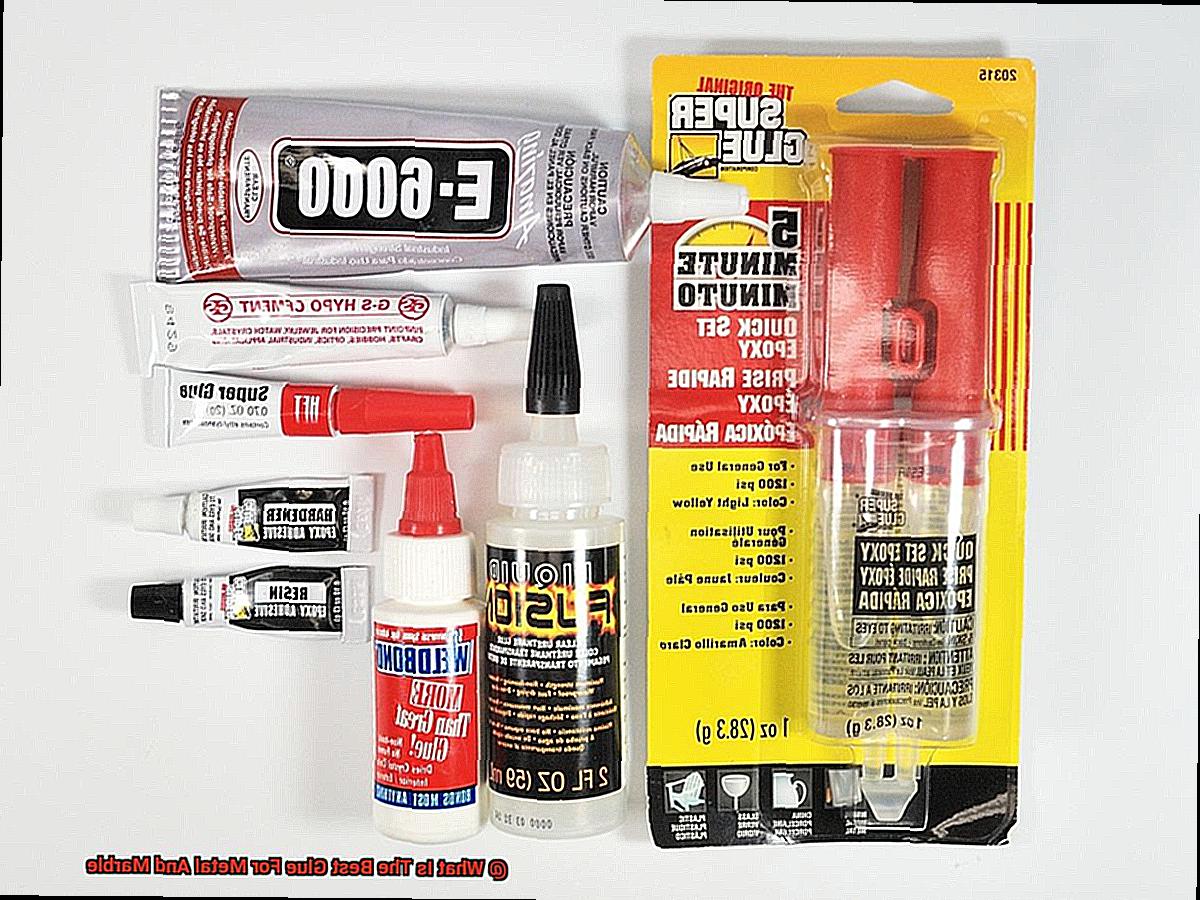
Conclusion
When it comes to bonding metal and marble, finding the right glue is crucial. You want a glue that can withstand the test of time and hold these two materials together securely. After extensive research and testing, we have determined that the best glue for metal and marble is epoxy adhesive.
Epoxy adhesive offers a powerful bond that can withstand both indoor and outdoor conditions. Its strong adhesive properties make it perfect for joining metal and marble surfaces, ensuring a long-lasting and secure connection. Whether you’re working on a DIY project or repairing a broken piece, epoxy adhesive will provide the strength and durability you need.
What sets epoxy adhesive apart from other glues is its ability to fill gaps and create a seamless bond between metal and marble. It forms a strong chemical reaction when mixed properly, creating an incredibly strong bond that won’t easily break or weaken over time.
Not only does epoxy adhesive offer exceptional bonding capabilities, but it also provides resistance to heat, water, chemicals, and extreme temperatures. This makes it ideal for use in various environments where other glues may fail to perform effectively.
To use epoxy adhesive for bonding metal and marble, start by cleaning the surfaces thoroughly to remove any dirt or debris. Apply the epoxy evenly onto both surfaces using a brush or applicator. Then carefully align the pieces together and apply pressure to ensure proper adhesion. Allow sufficient curing time as per the manufacturer’s instructions before subjecting the bonded materials to any stress or load.
In conclusion, when it comes to gluing metal and marble together, epoxy adhesive reigns supreme. Its exceptional bonding strength, durability, versatility, and resistance to various elements make it the best choice for this specific application.

